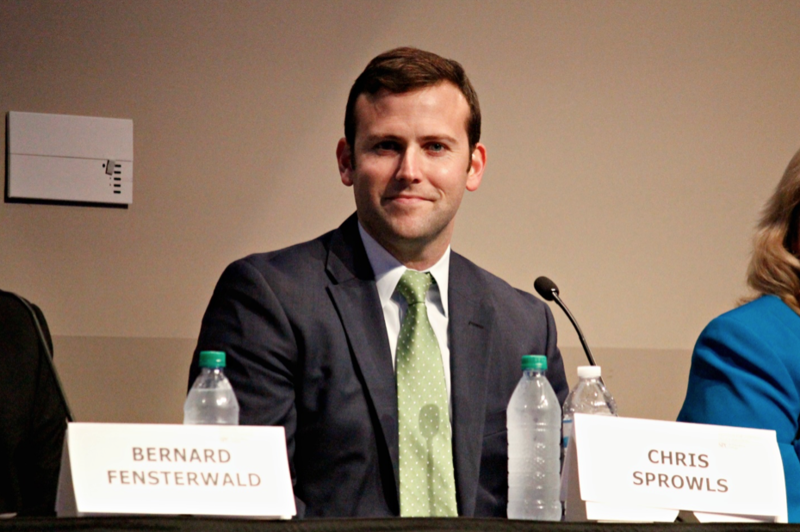By Michael Moore Jr.
Rep. Ray Rodrigues, R-Estero, is officially the sponsor of a bill that would utterly change the landscape of the University of South Florida system.
However, it’s a USF alum who is behind the push to roll back history and abolish the separate accreditation of USF St. Petersburg and USF Sarasota-Manatee.
Rep. Chris Sprowls, R-Palm Harbor, thinks the impacts of the bill are “virtually all positive.”
“If this were to go through, all of the campuses would have access to a pre-eminent university in their backyard,” he said.
Sprowls, 34, a 2006 graduate of USF, is a lawyer serving his second two-year term in the House.
Although he is young and still relatively new to the House, he is already one of the chamber’s most powerful members.
Reason: He has lined up enough votes from fellow Republicans to become speaker of the House in the 2020-2022 term. And that makes members reluctant to oppose his wishes.
The House speaker controls committee assignments and committee chairmanships, which effectively determines which bills reach the House floor. The speaker even controls which Capitol offices – and parking spaces – members get.
Many Tallahassee insiders think the current House speaker, Richard Corcoran, has more power in Tallahassee than Gov. Rick Scott.
In a phone interview with The Crow’s Nest, Sprowls explained that he understands the reluctance of some students and professors to accept the bill as a positive.
“It’s good to be cautious about changes like this,” he said. “But this is a unique opportunity to bring resources together and elevate the USF brand nationally by making sure that all three campuses are pre-eminent and have access to pre-eminent resources.”
V. Mark Durand, a professor of psychology who was founding dean of the College of Arts and Sciences in 2003-2004 and acting vice chancellor of academic affairs in 2015-16, isn’t so sure USF would receive the same pre-eminent status once bundled together with the regional campuses.
“One paranoid thought by some of my colleagues is that this is exactly what UF and FSU would want to happen,” Durand said.
Durand says that if they roll up the numbers on graduation rate, salaries and other performance metrics, there’s a fear from Tampa that the metrics might be lowered to a point where they are no longer pre-eminent.
“If we’re no longer pre-eminent, than that pre-eminence money doesn’t get shared three ways,” Durand said.
Sprowls doesn’t see it that way.
According to him, that might be a logical fear were the bill being implemented immediately, however, he says that the two year timeline to phase in the single accreditation will provide the USF system with enough of a window to adjust accordingly.
Also, if that were a concern, he’d expect major pushback from Tampa, which he says he has not received.
Sprowls does, however, understand the frustrations of students and professors who have grown leery of USF Tampa with their increasingly hands-on approach.
Had he been around as a policy-maker in 2006 and not a student, he may have been a proponent of USF St. Petersburg’s separate accreditation back then, he says. But the landscape has changed.
The state university system being accountable to a pre-eminence model changes everything.
“This policy counteracts the criticisms we’re hearing because it puts everyone in the same boat,” Sprowls said. “It no longer matters if a PhD is done at Tampa or St. Petersburg because all of the good work on each of those campuses will count toward their standing nationally.
“Currently, that is not the case,” Sprowls said.
The current system in place actually disincentivizes Tampa from sharing its resources, and the proposed restructuring will allow all three campuses to flourish, he argues.
He also predicts that this will lead to new majors and degree programs, additional resources, and prestige.
“Having all of the university together not only creates additional opportunity, but it does so by encouraging everyone to rise and fall together,” Sprowls said.
Header photo courtesy of Grace Cunningham



